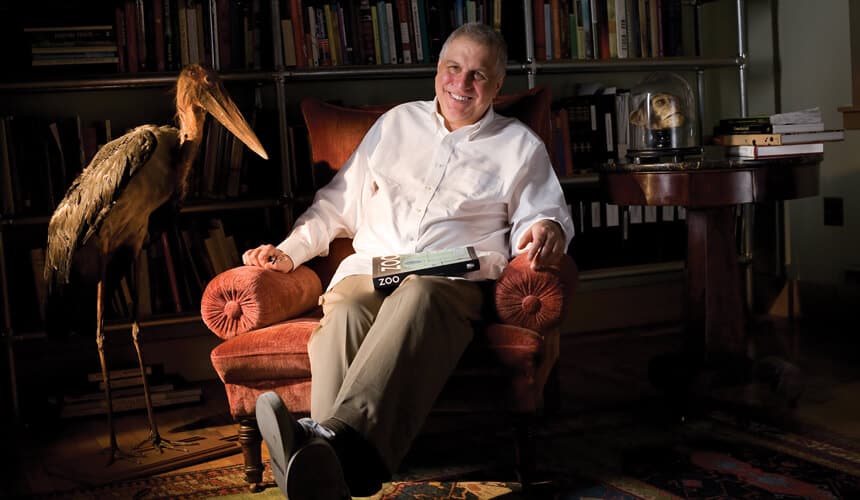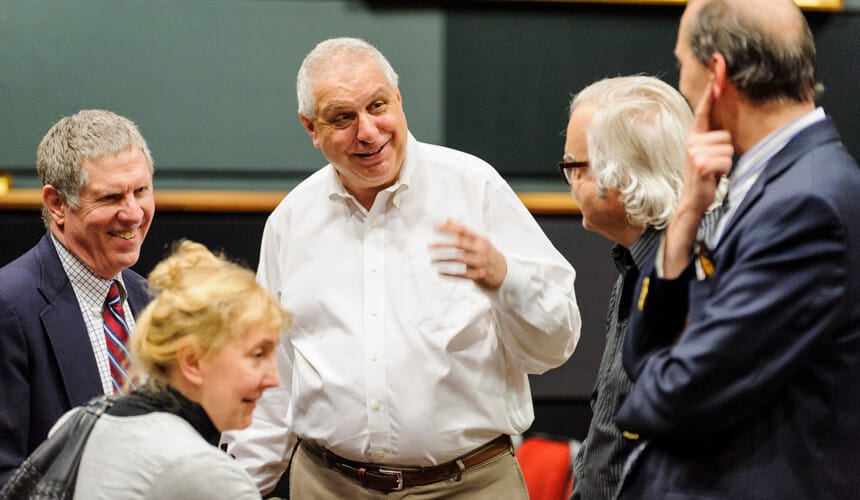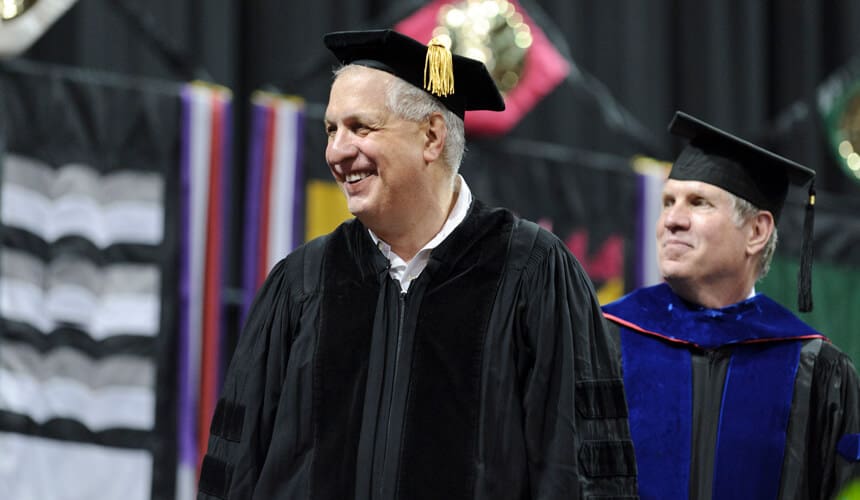Errol Morris
‘History is a crime scene’
With a ninth-grade IQ measured at 87 and habit of getting thrown out of graduate schools, Errol Morris BA1969 never claimed to be an academic.
Still, he became an Oscar-winning filmmaker and author by leveraging his piercing curiosity, a detective’s persistence, and a stubborn hunt for truth.
“I feel I have a duty to seek the truth, to try to understand the world,” Morris said. “It’s not so much the job of condemning or finger-pointing, but the job of trying to understand things.”
The history major found a calling at the University of Wisconsin, where he listened to Professor Harvey Goldberg’s standing-room-only lectures in 125 Agriculture Hall and viewed some of the thousands of Warner Brothers-RKO film prints at the Wisconsin Historical Society.
“History is a crime scene,” said Morris. “Part of our job is to untangle that crime scene and make sense out of it.”
Morris uses a penetrating, meticulous interviewing style to plumb the depths of history.
His Thin Blue Line, a critically acclaimed 1988 documentary, is credited with helping to exonerate a man convicted in the death of a Dallas police officer. His film The Fog of War, about the career of Robert McNamara, who served as defense secretary during the Vietnam War, won a 2003 Academy Award for Best Documentary.
The late film critic Roger Ebert named Morris’s Gates of Heaven to his list of the 10 best films of all time.
Morris’s interviews are filmed with a device he invented, called the Interrotron. It allows him to capture his interview subjects looking directly into a camera that shoots through the clear glass of a teleprompter while the subject views an image of Morris asking questions.
Morris recalls leaving Goldberg’s lectures uplifted and hopeful; inspired and deeply influenced.
“Unforgettable — lectures that had this enormous moral force. The feeling you had coming out of a Goldberg lecture was that history could be changed — that bad things happened in history, but they were forces for good,” he said. “You could actually have an effect on the course of history. It’s a very, very powerful lesson to be given.”
 37° F
37° F

